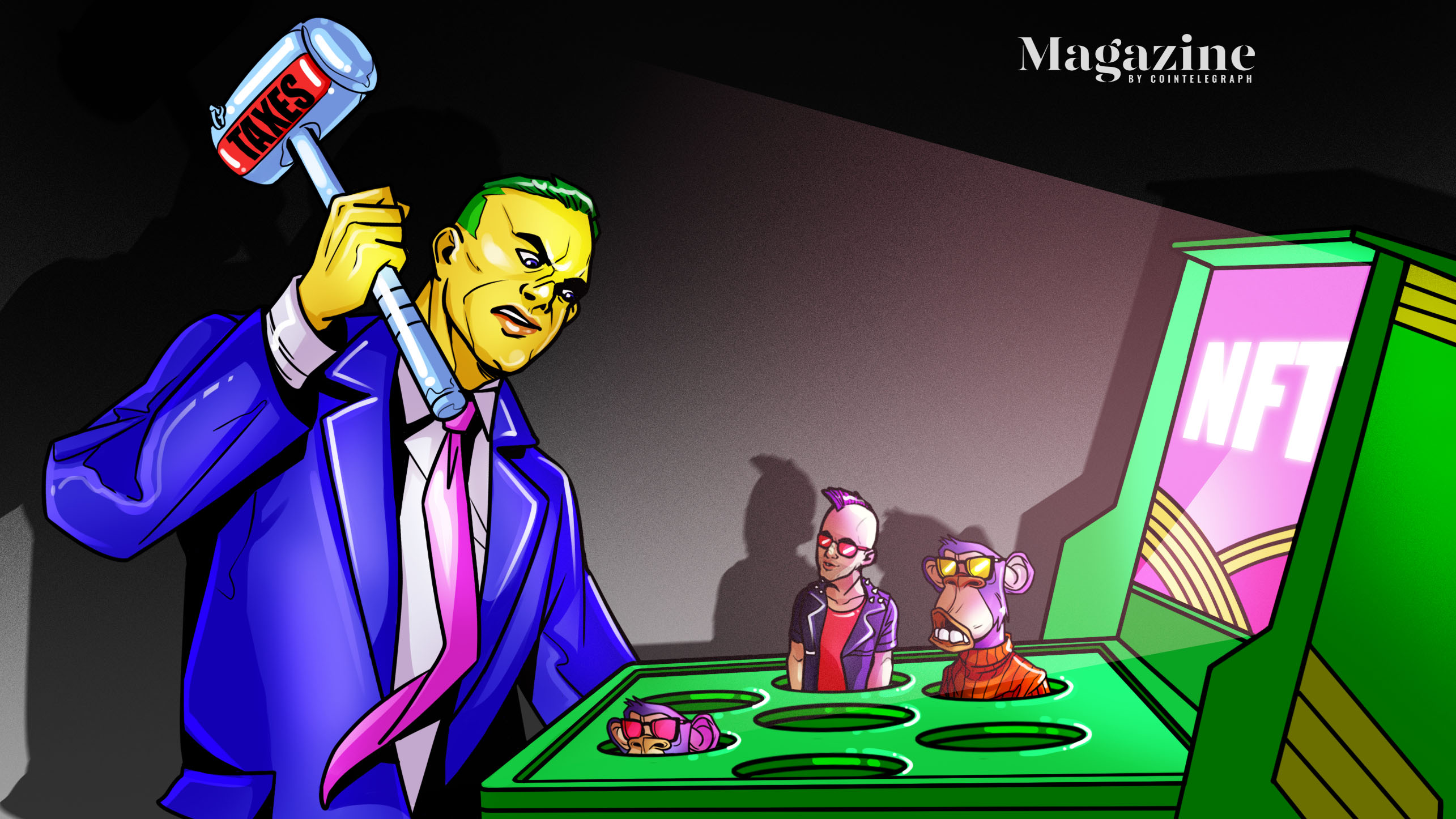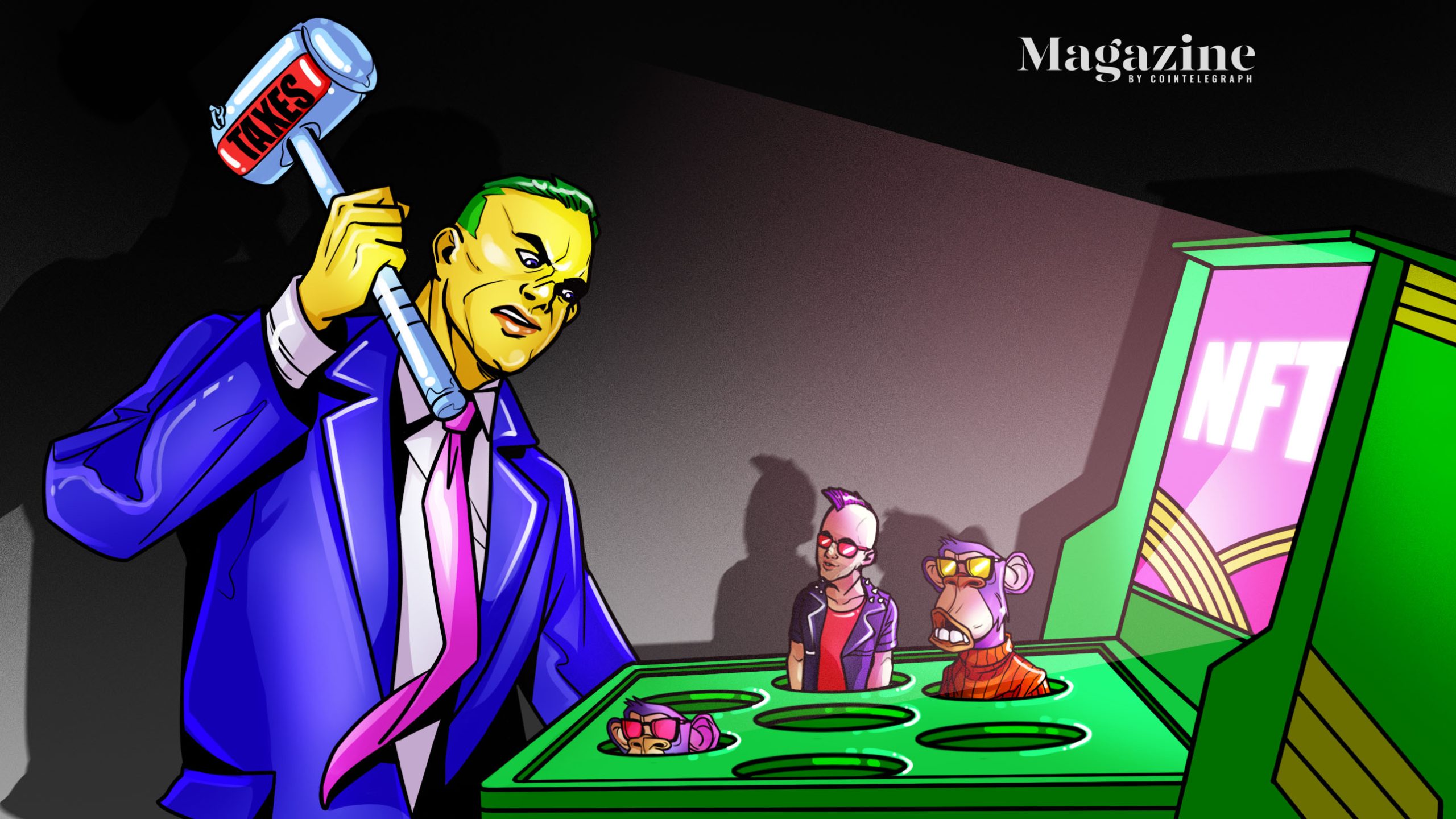NFTs can now serve as court documents… but they might also be unregistered securities, illegal loot boxes, or come with impossible tax demands. Nonfun
NFTs can now serve as court documents… but they might also be unregistered securities, illegal loot boxes, or come with impossible tax demands.
Nonfungible tokens (NFTs) are thought of by most people as just funny pictures that degens on the internet spend far too much money on for poorly understood reasons. But Jason Corbett, managing partner of global blockchain law firm Silk Legal, says new and innovative use cases are beginning to emerge.
“We’ve seen recently the courts allowing the serving of court documents by way of an NFT,” Corbett says, referring to a recent decision by a United Kingdom court to allow notice of the case to be served by airdropping court documents as NFTs to wallets allegedly stolen from the claimant.

This changes our conception of what NFTs are and what rights and responsibilities come with them. Following this precedent, the sending of NFTs can be understood as a type of electronic communication, with the caveat that it is generally public. The sending of NFTs is more comparable to attaching posters to the outer wall of one’s house versus discreetly sliding them into the mailbox.
This comparison to publicly visible posters begs the question of whether this means that individuals controlling blockchain wallets hold responsibility for the NFTs they hold, in the same way as a homeowner would ultimately be responsible for removing obscene or otherwise illegal posters on their property, even if placed there against their will.
Does this mean that, for example, the owners of wallets may in the future be responsible for monitoring them for any type of illegal content sent to them, and act quickly to dispose of them in some manner? That’s just scratching the surface.
Metaverse Law MA thesis “ENCODED TERRITORY: The Blockchain-based Metaverse as a Special Environment of International Law” argues that the #Metaverse influences the balance of global power & demands special legal treatment @UniTurkuLaw @UniTurku#NFTs #BlockchainGaming #cryptolaw pic.twitter.com/GSvghv6Xoy
— Elias Ahonen.eth (@eahonen) June 11, 2022
“The blockchain Metaverse presents challenges to the international order due to the limited ability of states generally to intervene in metaverse-based actions,” I wrote in my Master’s in International & Comparative Law thesis, “The Blockchain-based Metaverse as a Special Environment of International Law.” One fascinating, and perhaps off-putting, matter that has continued to come up in my research is the lack of clarity and, at times, the absurdity of earthly legal matters when applied in, and to, the metaverse.
NFTs and cryptocurrencies are a good place to begin exploring the subject, seeing they are effectively the building blocks and lifeblood of the metaverse. Both are, of course, tokens — one being nonfungible in the sense that they are unique “items,” with the other being fungible “energy” with which the metaverse operates. By metaverse, we of course refer to the blockchain-based version of it, not some corporate-controlled Fortnite version.
Securities regulations
A variety of cryptocurrencies, often known as tokens or coins, began to appear in 2011 as theoretical alternatives to Bitcoin. Growing in prominence, they had their day in the spotlight during the initial coin offering (ICO) boom of 2017, during which hundreds of projects attempted to raise money by issuing tokens to investors.
When hundreds of millions of dollars are being raised in an entirely new way, it’s not surprising that potential legal concerns are lurking around the corner. This was certainly the case with ICOs, which regularly ran afoul of securities laws and the related accredited investor laws, says Randall Johnson, a United States lawyer with 30 years of experience specializing in securities regulations and who advises various blockchain projects.
What will be the law of the metaverse? . The legal and ethical dilemmas plaguing technology today will only grow more acute in the metaverse, writes Brian Harley. How will real-world laws apply?
— Nathan (@shanzi73338680) August 28, 2022
He explains that one of the key questions around whether a token can be classified as a security is whether “the general public would think it is an investment.” This means that white papers or presentations that boast that tokens are “already on exchanges” or, worse, openly describe them as “good investments” and use “to the moon” style boosterism, are painting targets on their backs. Another factor that almost always makes a token a security is “if it operates like a dividend-paying share in a company,” he explains.
“A large part of regulator analysis on whether a token might be a security has to do with how it is advertised and promoted.”
But how is the financial regulation of cryptocurrencies related to the metaverse and NFTs? It’s because…
cointelegraph.com
